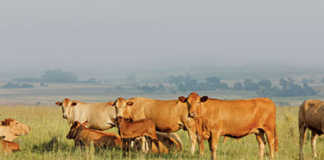While the NDP isn’t perfect, it establishes the most “cohesive and coherent framework from which to tackle the many challenges South Africans face” said Purchase.
Agbiz also welcomed the emphasis on a crackdown on “anarchic behaviour”, violent crime and corruption, which are all undermining the fabric of society and investor confidence in the country. The further emphasis on infrastructure development and education will bring economic benefit, if backed up by investor and entrepreneurial-friendly policies and legislation. Too many barriers and constraints remain that impede economic growth, according to Purchase.
"With regard to land reform, the commitment to resolve it amicably within the framework of the Constitution and the law is welcomed by Agbiz, but uncertainty remains around the newly adopted ‘just and equitable’ principle for compensation, as set out in the Constitution. This may very well lead to Constitutional Court challenges in order to clarify the process and principle," said Purchase.
TAU SA said Zuma failed to show statesmanship and deliver a speech that could capture the imagination of the country.
“His emphasis on the anniversary of the 1913 Native Land Act, the proposed commemoration of the Rivonia Trial and arrests at the Lillysleaf estate 50 years ago, and his sympathy with the passing of so-called ‘struggle’ veterans, made the State of the Nation Address basically nothing more than a ‘Struggle’ address,” said TAU SA president Louis Meintjes.
Along with the death of his ‘struggle’ friends, Zuma could at least have expressed his condolences to the relatives of the 51 farmers murdered on their farms last year, added Meintjies.
He said agriculture is once more going to face a difficult time with the announcement that the ‘willing buyer, willing seller’ principle is going to be replaced with a system of ‘just and equitable’ compensation during the land reform process.
It’s clear that the state will unilaterally determine what this compensation will be, and “this will lead to even more job losses in the agriculture sector,” said Meintjes.
“Instead of bringing the uncertainty of land reform to an end Zuma increased it with the announcement that the land claims process will be re-opened and may include claims from before 1913. This will create new uncertainty in the agriculture sector and will certainly have a visible impact on food security in the country within the next five years,” he warned. – Staff reporter












